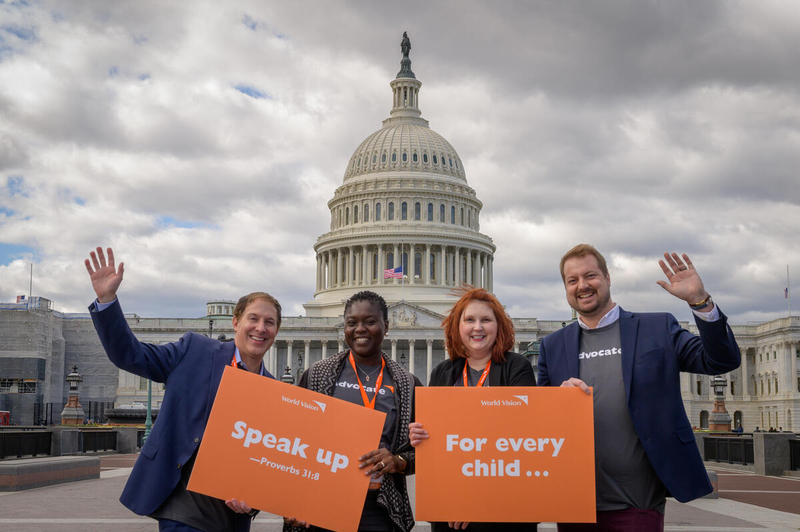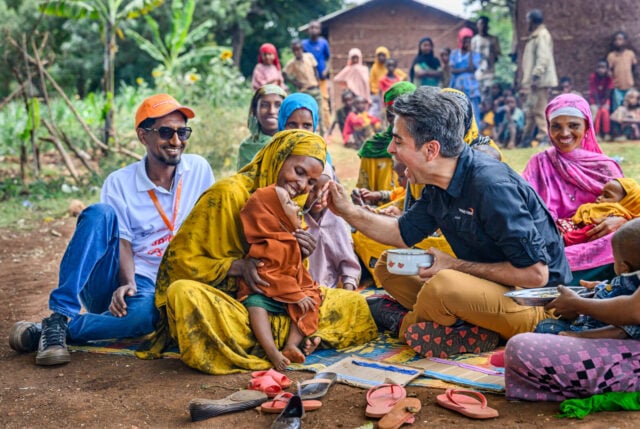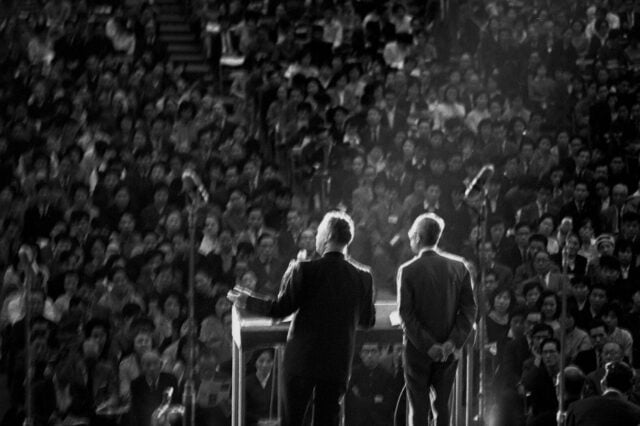The campaign season leading up to an election can be exhausting — constant ads and overwhelming negativity that seem to last longer and longer every election cycle. It can be difficult, even as a person of faith, to stay engaged and positive, seeing the ways that God is present in a process that can feel very messy.
There are big policy differences between U.S. candidates and political parties, and elections impact important policies, both in Congress and the White House. As people of faith and supporters of international development and humanitarian programs that seek to restore dignity and hope for millions around the world, what issues should we be paying attention to in this election? Which issues are at stake?
Here are four big issues to watch in the 2020 U.S. election.
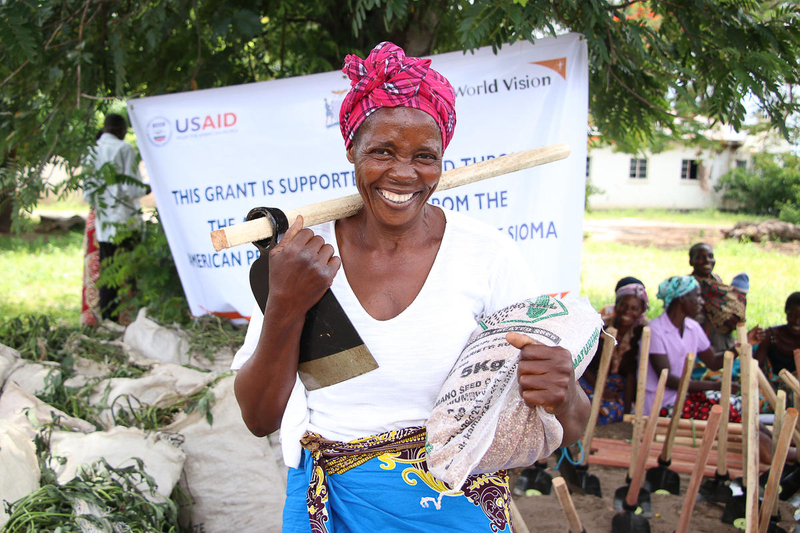
1. Foreign assistance
Less than 1% of the U.S. government’s budget is poverty-focused foreign assistance — programs that help address the root causes of poverty (and lift families out of poverty!) as well as respond to humanitarian crises and natural disasters around the world. These funds go to organizations, including World Vision, who have the expertise and the capacity to carry out programs with U.S. government funding.
Thankfully, foreign assistance has a long, bipartisan history and support across the political spectrum. But we cannot take that support for granted! In both 2018 and this election, many members of Congress are choosing not to run for reelection. This means that we are losing some of the institutional knowledge and understanding of the role of the U.S. in alleviating poverty and saving lives around the globe. One of the biggest stakes in this election is that new decision-makers will not = understand the importance of foreign assistance programs. We need voters (like you!) to show candidates that you care about these issues and that you want them to as well.
Also at stake is the opportunity to improve the efficiency and effectiveness of foreign assistance. The Trump administration has prioritized the Journey to Self-Reliance in foreign assistance — creating a structure where the goal is for countries to support their own development and reduce reliance on U.S. aid. The way the foreign assistance is spent should ensure that both our short-term goals — supporting the most vulnerable with education, health, water, livelihoods, etc. — and our long-term objective — ending poverty and the need for foreign assistance — are equal priorities. But above all, compassion and wisdom should guide the U.S. government’s policy on foreign assistance to ensure that taxpayer dollars are used effectively.
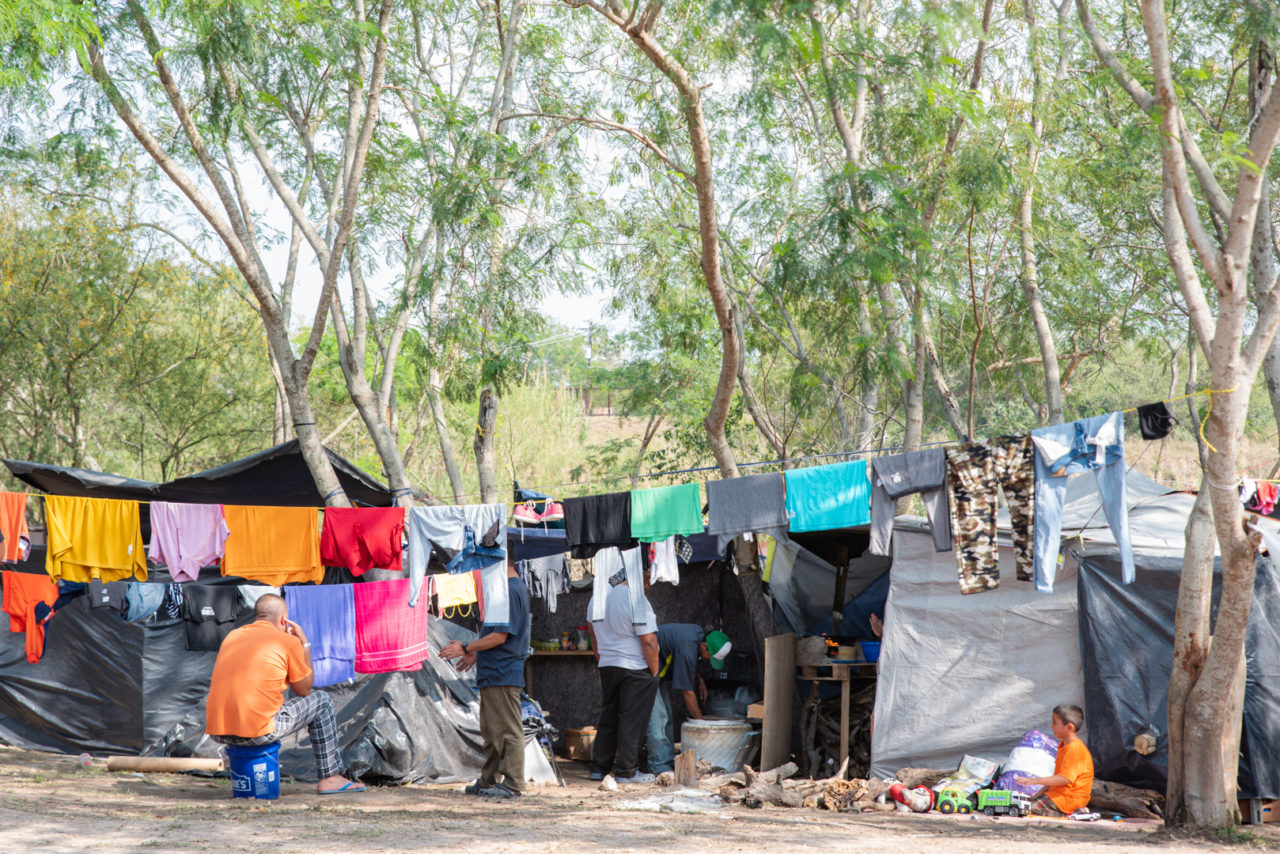
2. Children at the border
Republican and Democrat administrations, as well as Congress, have struggled with how to manage unaccompanied minors and separated children at the border. Both the incoming administration and Congress will need to come together, in a bipartisan way, to increase attention to the root causes of migration from Central America and support programs that reduce violence and increase education and economic opportunity, empowering families to feel safe at home. Policies that result in additional trauma to children, including prolonged separation from a parent or family member, are also at stake, and we pray that decision-makers will prioritize the safety of children at our border.
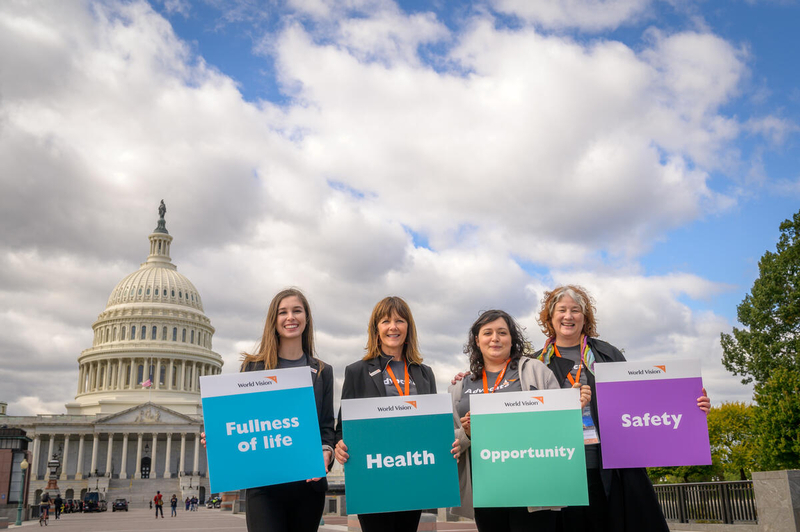
3. Religious freedom partnering with the U.S. government
About one-third of World Vision’s funding comes through grants and partnerships with the U.S. government. We compete for these projects, which often help leverage our work through sponsorship, extending our reach into communities to address the root causes of poverty, as well as to respond to emergencies, natural disasters, and crises.
While we value our partnership with the U.S. government, some candidates would oppose giving funding to organizations, like World Vision, who have policies aligned with their Christian faith. Some in Congress have even proposed legislation that would require World Vision to change its policies to continue to receive funding from the U.S. government. This election could be critical to ensuring that religious freedom and religious liberty are upheld so that we can continue our work as a U.S. government partner.
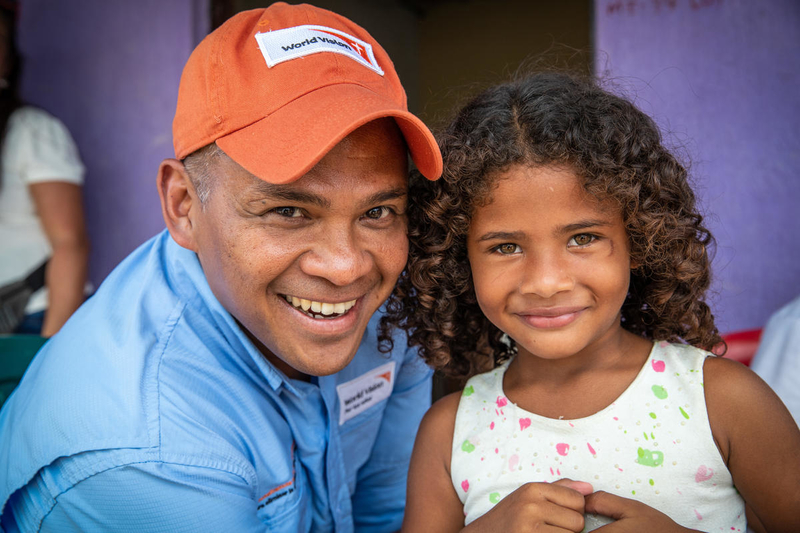
4. Our humanitarian principles
Over the history of U.S. foreign assistance, back to post-World War II, aid has been given solely based on need, not on any expectation of something in return. While there is gratitude around the world toward the United States for our support of people who are vulnerable and suffering, historically, there has not been a transactional or conditional aspect in deciding who gets foreign assistance. Assistance should be based on need above all.
Some elected leaders believe the U.S. should get something in return for the aid we provide or that we should only give aid to countries who vote with the United States in places like the United Nations. We hope that there will be a return to long-held values of foreign assistance that is provided by need.
Above all, in this election season, we are followers of Christ. Our identity is in him, whether you think of yourself as a republican, democrat, or independent. The biggest stake of all in this election is that we fail to reflect Christ’s love and our trust in his plan for our lives. Let’s continue to pray for our elected leaders and candidates in both national and local elections to seek God’s wisdom for the many issues facing our country and then follow God’s principles for the common good.
Lisa Bos is the director of government relations for World Vision in Washington, D.C.
